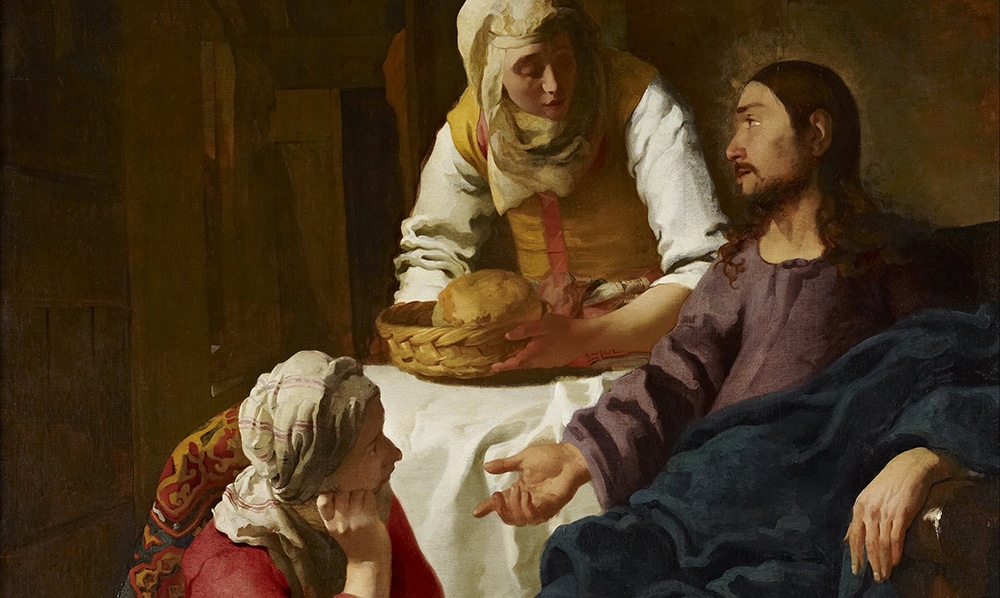
It is this Mary who has chosen the better part (cf. Lk 10:42). She is the one who doesn’t worry about dinner, sitting at the feet of Jesus. But that naughty Martha, so focused on day-to-day preparations: “Tsk, tsk,” we say to ourselves.
This interpretation is partly right. Martha does complain to Jesus, telling him to push Mary into the kitchen. She wants to circumscribe Mary’s gaze, to take her away from contemplation toward the practice of hospitality.
At the same time, it is likely to reduce Martha to one addicted to frenetic activity. The welcoming of a guest within one’s home, to feed and give drink to the stranger — this is integral to the Law of Israel.
After all, it is Abraham who welcomes the three strangers into his home. He marshals the forces of his home for the act of hospitality. Bread is made, an animal is prepared, curds and milk are offered. These strangers are God’s messengers, and it is through the act of hospitality that the angelic figures introduce the fulfillment of the covenant with Abraham: Sarah will give birth to a child — a son — in the next year.
| 16th Sunday of Ordinary Time – July 21, 2019 |
|---|
|
GN 18:1-10 |
The problem of Martha is not that she cares about offering hospitality. Rather, she seems to offer this hospitality apart from an act of contemplation. The one who is welcomed is not just any traveling street preacher. He is not just their friend, Jesus, the son of Mary. He is the very reign of God made flesh, the speech of God made present through the human body. Who wouldn’t want to sit and dwell with him?
Martha offers the proper hospitality, but it is not yet a contemplative hospitality. Mary at least dwells with the loveliness of God made present to her. In Christian life, it is this contemplative attitude that must inform every act of hospitality.
In the United States, we have ample occasion to practice this hospitality. At our southern border, migrants from Latin America are arriving each day. Many are escaping from threats of violence.
Teenagers have been told by gangs that if they don’t join, they’ll be murdered. Men and women are escaping the horrors of poverty, hopeful that they might be able to put something on the table for their children. They’re coming to the border looking for hope.
And they have needs. They enter without clothing. Once released by the government, they often need help getting in touch with family. They need a shower and food. They need human touch, to be treated as fellow human beings.
Regardless of political party, this basic hospitality cannot be refused. The churches on the border have offered this hospitality and marshaled their own energies to welcome the one without home.
We Christians are obliged to act, to offer this hospitality, because of our contemplative vocation. The one who comes to us hungry and thirsty, without even the slightest home, is, at the same time, the presence of Jesus Christ.
There are political decisions that must be made about immigration. There will be political disagreements about those of goodwill.
But the Church intervenes for the migrant because of the contemplative hospitality she practices. In welcoming the one without home, we don’t just engage in activity. We’re learning to sit down at the feet of the Lord.
Timothy P. O’Malley, Ph.D., is the director of education at the McGrath Institute for Church Life at the University of Notre Dame.





